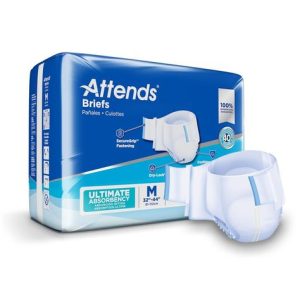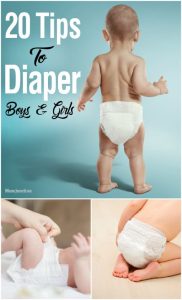Diapers are a vital part of infant care, keeping babies comfortable and parents mess-free. But with so many options and factors to consider, how long do diapers really last? This article explores everything you need to know about diaper longevity, offering tips for optimal usage and preventing leaks.
Understanding Diaper Absorbency
Diapers are designed to absorb large amounts of fluid. However, their capacity isn’t limitless. Here’s what affects a diaper’s absorbency:
Diaper Size and Type:
Diapers come in various sizes for different weight ranges. Bigger diapers naturally hold more liquid. Similarly, overnight diapers are designed for increased absorbency.
Material Composition:
Diapers are made with absorbent materials like gel crystals that trap fluids. Different brands and qualities may have slight variations in absorbency.
Your Baby’s Uniqueness:
Every baby urinates at different frequencies and volumes. This will influence how often you’ll need to change diapers.

Signs Your Baby Needs a Diaper Change
It’s important to change diapers frequently to prevent discomfort and potential diaper rash. Here are some telltale signs:
-
Feeling Heavy: A full diaper will feel heavy and saggy.
-
Visible Wetness: Look for a wet bulge in the diaper, especially in the front for boys and the center for girls.
-
Strong Odor: A strong ammonia-like odor indicates a full diaper that needs changing.
-
Discomfort: Babies may become fussy or cry if their diaper is wet or soiled.
How Often Should You Change Diapers?
There’s no one-size-fits-all answer to how often you should change diapers. However, here’s a general guideline:
-
Newborns: Newborns may need diaper changes every 2-3 hours, or more frequently if they poop.
-
Older Babies: As babies grow and their bladder capacity increases, diaper changes can be spaced out to every 3-4 hours during the day.
-
Nighttime: Nighttime diapers are designed for longer wear, but it’s still recommended to check on your baby once or twice throughout the night.
Always check your baby’s diaper regularly and change it when needed to prevent leaks and irritation.

Diaper Changing Tips for Effectiveness and Comfort
Here are some tips for ensuring your baby’s diaper lasts as long as it’s designed to, while keeping them comfortable:
-
Size Matters: Use the correct diaper size for your baby’s weight. A snug but comfortable fit helps prevent leaks.
-
Snug Fit Around Legs: Ensure a snug fit around the legs to prevent leaks. Look for adjustable tabs or leg cuffs for a secure closure.
-
Point the Penis Downward (For Boys): For boy babies, point the penis downward inside the diaper for better containment.
-
Diaper Changes After Pooping: Always change diapers immediately after a bowel movement to prevent diaper rash.
-
Wipe Gently: When changing a diaper, wipe your baby’s skin gently to avoid irritation. Apply diaper cream if necessary.
Environmental Considerations: Disposable vs. Cloth Diapers
Disposable diapers offer convenience, but they generate waste. Here’s a brief comparison to consider:
-
Disposable Diapers: Convenient and easy to use, but contribute to landfill waste.
-
Cloth Diapers: More eco-friendly and reusable, but require washing and can be more time-consuming.
The choice between disposable and cloth diapers depends on your lifestyle and environmental preferences. There are also hybrid options that combine elements of both.
Remember, the most important factor is keeping your baby comfortable and healthy.

How Long Do Diapers Last? It Depends!
There’s no single answer to how long a diaper lasts. Several factors influence how often you’ll need to change diapers:
-
Diaper Absorbency: Diapers come in various sizes and types, with different capacities for holding liquid. Overnight diapers, for example, are designed to last longer than regular daytime diapers.
-
Your Baby’s Uniqueness: Every baby urinates at different frequencies and volumes. Frequent pee-ers will likely need diaper changes more often than those who go less frequently.
-
Solid Bowel Movements: Poop fills up the diaper’s capacity faster than urine. Always change diapers after a bowel movement to prevent discomfort and potential rash.
Signs Your Baby Needs a Change – Listen to Your Baby’s Cues!
The best way to know how long a diaper lasts for your baby is to watch for signs they need a change. Here are some tips:
-
Feeling Heavy: A full diaper will feel heavy and saggy. Check the diaper’s weight to see if it feels full.
-
Visible Wetness: Look for a bulge or wetness in the diaper, especially in the front for boys and the center for girls.
-
Strong Odor: A strong ammonia-like odor indicates a full diaper that needs changing.
-
Discomfort: Babies may become fussy or cry if their diaper is wet or soiled. Pay attention to your baby’s cues!

Keeping Your Baby Comfortable – Changes When Needed
Here are some tips for ensuring your baby’s diaper lasts as long as it’s designed to, while keeping them comfortable:
-
Size Matters: Use the correct diaper size for your baby’s weight. A snug but comfortable fit helps prevent leaks.
-
Snug Fit Around Legs: Ensure a snug fit around the legs to prevent leaks. Look for adjustable tabs or leg cuffs for a secure closure.
-
Point the Penis Downward (For Boys): For boy babies, point the penis downward inside the diaper for better containment.
-
Diaper Changes After Pooping: Always change diapers immediately after a bowel movement to prevent diaper rash.
-
Wipe Gently: When changing a diaper, wipe your baby’s skin gently to avoid irritation. Apply diaper cream if necessary.
By following these tips and paying attention to your baby’s cues, you can ensure they stay comfortable and prevent leaks. Remember, diaper changes are a frequent part of infant care, so be prepared and stock up on supplies!

-
Diaper Types: Diapers come in various sizes and absorbency levels. Overnight diapers, for example, are designed to last longer than regular daytime diapers.
-
Baby’s Uniqueness: Every baby eliminates differently. Frequent pee-ers may need more changes than others.
-
Signs for Changing: Look for feeling heavy, wetness, strong odors, or fussiness from your baby.
How Often to Change Diapers
There’s a general guideline, but always check on your baby:
-
Newborns: Every 2-3 hours, or more often if they poop.
-
Older Babies: Every 3-4 hours during the day, but check once or twice at night.
By following these tips and paying attention to your baby’s cues, you can ensure they stay comfortable and prevent leaks. Remember, diaper changes are a frequent part of infant care!





